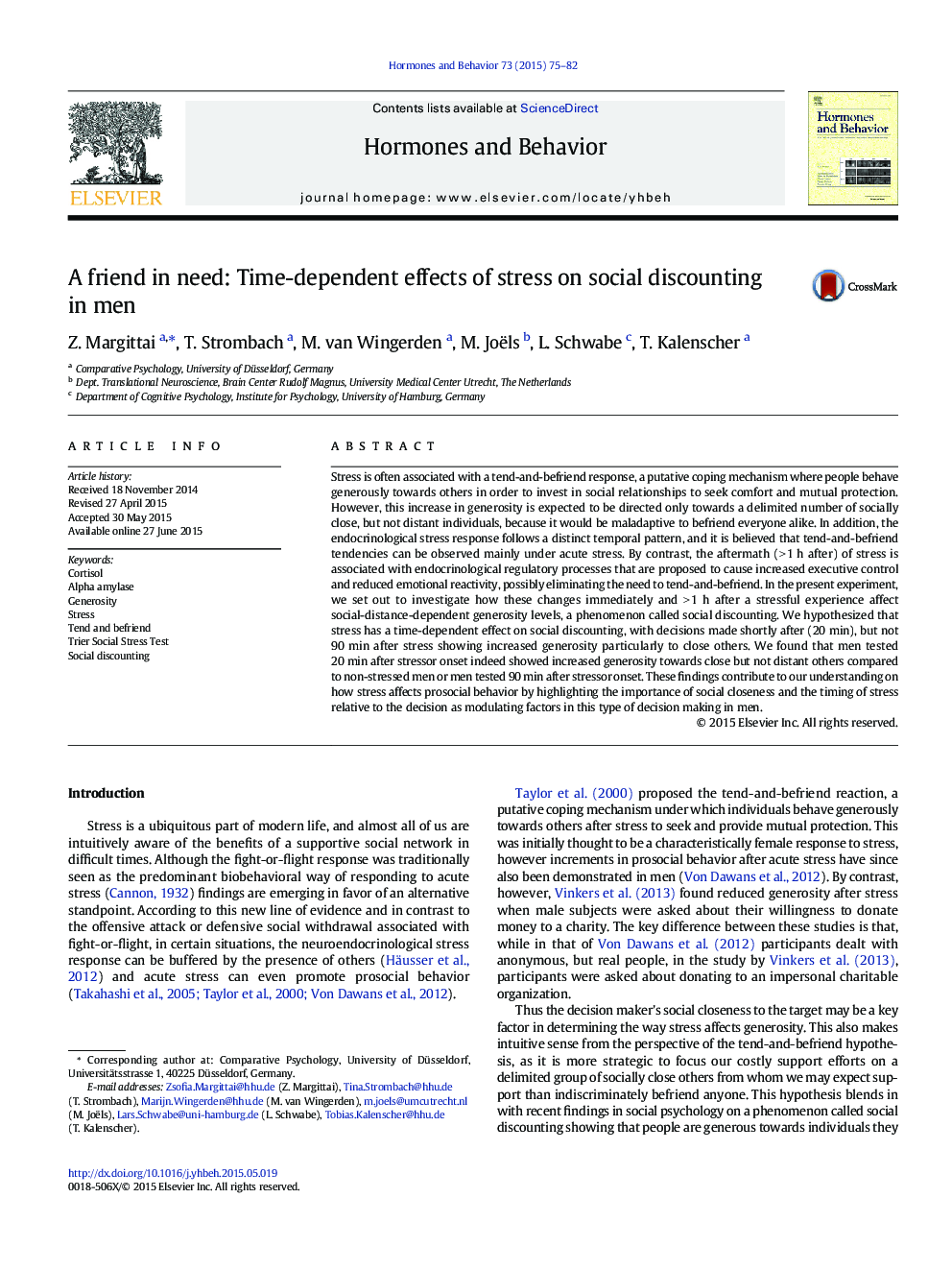| Article ID | Journal | Published Year | Pages | File Type |
|---|---|---|---|---|
| 6794840 | Hormones and Behavior | 2015 | 8 Pages |
Abstract
Stress is often associated with a tend-and-befriend response, a putative coping mechanism where people behave generously towards others in order to invest in social relationships to seek comfort and mutual protection. However, this increase in generosity is expected to be directed only towards a delimited number of socially close, but not distant individuals, because it would be maladaptive to befriend everyone alike. In addition, the endocrinological stress response follows a distinct temporal pattern, and it is believed that tend-and-befriend tendencies can be observed mainly under acute stress. By contrast, the aftermath (>Â 1Â h after) of stress is associated with endocrinological regulatory processes that are proposed to cause increased executive control and reduced emotional reactivity, possibly eliminating the need to tend-and-befriend. In the present experiment, we set out to investigate how these changes immediately and >Â 1Â h after a stressful experience affect social-distance-dependent generosity levels, a phenomenon called social discounting. We hypothesized that stress has a time-dependent effect on social discounting, with decisions made shortly after (20Â min), but not 90Â min after stress showing increased generosity particularly to close others. We found that men tested 20Â min after stressor onset indeed showed increased generosity towards close but not distant others compared to non-stressed men or men tested 90Â min after stressor onset. These findings contribute to our understanding on how stress affects prosocial behavior by highlighting the importance of social closeness and the timing of stress relative to the decision as modulating factors in this type of decision making in men.
Related Topics
Life Sciences
Biochemistry, Genetics and Molecular Biology
Endocrinology
Authors
Z. Margittai, T. Strombach, M. van Wingerden, M. Joëls, L. Schwabe, T. Kalenscher,
